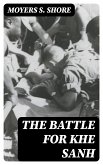In "The Battle of Bunkers-Hill," H. H. Brackenridge offers a compelling narrative that reexamines one of the pivotal battles of the American Revolutionary War. Brackenridge employs a vivid, descriptive prose style that intricately weaves personal accounts and historical facts, evoking the chaos and valor present on that fateful day. Set against the backdrop of the burgeoning struggle for American independence, his work stands as both a meticulous historical account and a stirring commentary on the broader implications of revolutionary fervor, positioning it within the literary context of the era's burgeoning interest in patriotism and national identity. H. H. Brackenridge was not only a writer but also a lawyer, politician, and educator deeply engaged in the political discourse of his time. His experiences as a contemporary observer in the revolutionary milieu undoubtedly fueled his desire to document the sacrifices made during the conflict. His diverse background allows his narrative to encompass not just the military engagements, but also the philosophical underpinnings of liberty and governance, revealing the complexities that informed the American Revolutionary spirit. This book is recommended for scholars, history enthusiasts, and anyone intrigued by the intersection of literature and history. Brackenridge's account acts as a lens through which readers can better understand the ideological and social currents that shaped a nation. His work is an essential addition to any collection focused on American history, providing insights into the human experiences that defined the Revolution.
Dieser Download kann aus rechtlichen Gründen nur mit Rechnungsadresse in A, B, BG, CY, CZ, D, DK, EW, E, FIN, F, GR, H, IRL, I, LT, L, LR, M, NL, PL, P, R, S, SLO, SK ausgeliefert werden.









